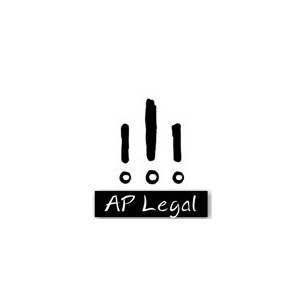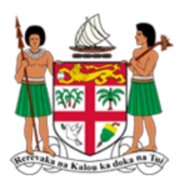Best Energy Regulatory Law Lawyers in Fiji
Share your needs with us, get contacted by law firms.
Free. Takes 2 min.
Or refine your search by selecting a city:
List of the best lawyers in Fiji
About Energy Regulatory Law in Fiji
Energy Regulatory Law in Fiji refers to the framework of statutes, regulations, and policies governing the production, distribution, and consumption of energy across the country. This legal field primarily covers electricity, renewable energy projects, petroleum, and gas. The aim is to ensure that energy services are available, reliable, sustainable, and affordable while protecting both consumer interests and the environment. Oversight of these matters is often conducted by the Fiji Commerce Commission, the Ministry of Infrastructure and Meteorological Services, and other regulatory bodies. The laws in this domain set standards for energy providers, regulate tariffs, promote competition, and enforce safety and environmental compliance.
Why You May Need a Lawyer
Navigating Energy Regulatory Law in Fiji can be complex due to evolving regulations and the need to comply with both local and international standards. A lawyer specializing in this field can be invaluable for:
- Energy project developers seeking permits, licenses, and approvals for renewable or conventional energy facilities
- Businesses negotiating Power Purchase Agreements (PPAs) or other supplier contracts
- Consumers or consumer groups wishing to challenge unfair energy pricing or service issues
- Investors and foreign entities interested in Fiji’s growing renewable energy sector
- Litigation and dispute resolution involving regulatory compliance, tariff disputes, or environmental concerns
- Compliance matters such as grid connection, safety standards, or regulatory reporting requirements
- Advising on government incentives for renewable energy and energy efficiency projects
Local Laws Overview
Several key laws and regulations form the foundation of Energy Regulatory Law in Fiji. These include:
- Electricity Act: Sets out the licensing, operations, and standards for electricity providers, including the Fiji Electricity Authority (now Energy Fiji Limited or EFL).
- Fiji Commerce Commission Act: Grants regulatory oversight over pricing, competition, and consumer affairs in the energy sector.
- Environment Management Act: Requires environmental impact assessments for new energy projects to ensure sustainable development.
- Renewable Energy Policy (2013): Encourages the development and integration of renewable energy sources such as hydro, solar, and biomass.
- Energy Fiji Limited (EFL) Regulations: Specific requirements for grid connection, supply agreements, and energy tariffs.
Local laws also mandate public consultation on major energy infrastructure projects, require licenses for energy trading or distribution, and set out dispute resolution mechanisms for consumers and service providers.
Frequently Asked Questions
What is the main regulatory body for energy in Fiji?
The main regulatory authority is the Fiji Commerce Commission, with Energy Fiji Limited (EFL) responsible for much of the electricity distribution and oversight under national energy laws.
How is electricity pricing determined?
Electricity tariffs are regulated by the Fiji Commerce Commission, which considers cost structures, reasonable return for the supplier, and protection for consumers.
Do I need a licence to generate electricity for commercial purposes?
Yes, any entity intending to generate electricity for supply to the public must first obtain a license issued under the Electricity Act or through Energy Fiji Limited.
Are there incentives for renewable energy projects?
Yes, the Fijian government provides various incentives, such as tax breaks and duty exemptions, to encourage investments in renewable energy.
What laws regulate solar or off-grid energy installations?
Off-grid and solar projects are subject to the Environment Management Act, the Electricity Act, and safety standards determined by EFL and other authorities.
Can consumers dispute their electricity bills?
Consumers have the right to dispute their bills by first approaching EFL and then, if unresolved, the Fiji Commerce Commission, which can mediate or arbitrate complaints.
What environmental regulations apply to new energy projects?
Any significant new energy development requires an Environmental Impact Assessment (EIA) in accordance with the Environment Management Act.
Who handles power outage complaints?
Initial complaints should be lodged with EFL. If unsatisfied with the response, consumers can escalate the issue to the Fiji Commerce Commission.
Are foreign investors allowed to participate in the energy sector?
Yes, foreign investors are welcome, particularly in renewable energy, but they must comply with the same licensing, environmental, and operational requirements as local entities.
What types of energy projects require public consultation?
Large-scale or potentially impactful energy projects, like new power plants or transmission lines, typically require community consultation under the Environmental Management Act.
Additional Resources
For more information and guidance on Energy Regulatory Law in Fiji, you may consult the following:
- Fiji Commerce Commission - for regulations, consumer complaints, and tariff information
- Energy Fiji Limited (EFL) - for connections, licensing, and technical standards
- Ministry of Infrastructure and Meteorological Services - for policy, planning, and energy sector initiatives
- Department of Environment - for environmental approvals and assessments
- Fiji Law Society - for finding qualified energy law practitioners
- Local universities and research institutes - for policy research and extension services on energy matters
Next Steps
If you require legal assistance with energy regulatory matters in Fiji, take the following steps:
- Gather all relevant documentation relating to your energy project, supply agreement, or dispute.
- Identify the particular issue or question you need legal advice on.
- Contact a qualified lawyer with experience in Energy Regulatory Law in Fiji. The Fiji Law Society can help you find practitioners.
- If your matter involves a complaint or dispute, consider first contacting EFL or the Fiji Commerce Commission for guidance.
- Prepare a concise summary of your concerns and desired outcomes before your meeting with the lawyer.
- Discuss possible strategies, timelines, and expected costs with your legal adviser.
Legal support in this area can help you secure licenses, resolve disputes, comply with law, and protect your interests whether you are a business, investor, or consumer.
Lawzana helps you find the best lawyers and law firms in Fiji through a curated and pre-screened list of qualified legal professionals. Our platform offers rankings and detailed profiles of attorneys and law firms, allowing you to compare based on practice areas, including Energy Regulatory Law, experience, and client feedback.
Each profile includes a description of the firm's areas of practice, client reviews, team members and partners, year of establishment, spoken languages, office locations, contact information, social media presence, and any published articles or resources. Most firms on our platform speak English and are experienced in both local and international legal matters.
Get a quote from top-rated law firms in Fiji — quickly, securely, and without unnecessary hassle.
Disclaimer:
The information provided on this page is for general informational purposes only and does not constitute legal advice. While we strive to ensure the accuracy and relevance of the content, legal information may change over time, and interpretations of the law can vary. You should always consult with a qualified legal professional for advice specific to your situation.
We disclaim all liability for actions taken or not taken based on the content of this page. If you believe any information is incorrect or outdated, please contact us, and we will review and update it where appropriate.
Browse energy regulatory law law firms by city in Fiji
Refine your search by selecting a city.
















